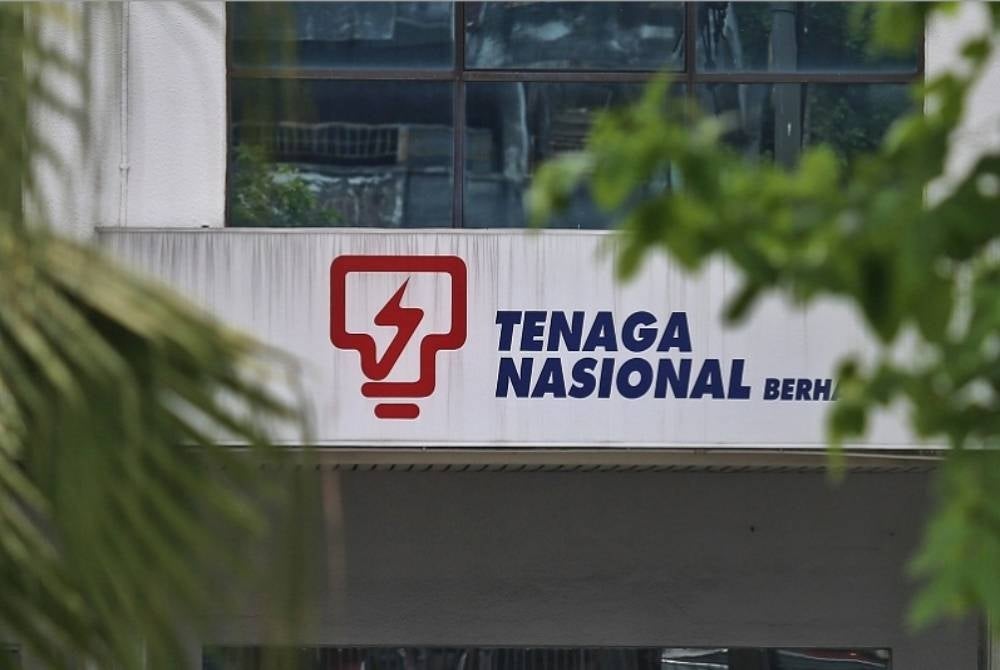TNB plays crucial role in driving Malaysia’s progress, development
23 Dec 2022 11:58am

Image for illustrative purposes only - FILE PIX
Over the last 73 years, the national utility company has grown from strength to strength to become an organisation that is responsive to the needs of its stakeholders and the marketplace.
In all of its endeavours, TNB is driven by its firm belief that it has a responsibility to improve the lives of Malaysians, making their lives better and brighter.
To this end, various investments, programmes, initiatives, solutions and campaigns have been implemented to continue expanding the system for the growth and development of the economy and businesses, while maintaining stability in the country’s electricity supply.
Moreover, it has also given back to the people through the payment of record-high dividend payments to the government, which flows back to the rakyat in the form of development allocation.
The utility giant has also undertaken numerous community projects to help the rakyat in various areas, including the social and economic sectors as well as sports.
Earlier this year, TNB extended the payment period for the remaining outstanding billing amount for residential consumers under its easy payment plan (EPP) from six months to 12 months, from Jan 1 to Dec 31, 2022, to ease the financial burden of consumers affected by the challenging economic situation.
The power giant’s relief package for its 7.5 million residential customers comprises an EPP, waiver of interest on late payment and an extended halt to the disconnection of the power supply.
Meanwhile, the TNB Reskilling Malaysia initiative has expanded its scope to include the country’s rising number of gig economy workers to accelerate Malaysia’s post-COVID-19 recovery.
The initiative is expected to boost the local labour market’s momentum as digitisation encouraged more flexible and employer-free work arrangements -- a key feature of the Fourth Industrial Revolution (IR4.0).
It also includes helping Malaysians - particularly fresh graduates, school leavers and retrenched workers - by matching them with suitable jobs as well as reskilling them through relevant training programmes based on the employers’ requirements.
TNB also provides participating employers an employee recruitment service, allowing them to source potential candidates and reskill the employees; and this programme is available at no cost to manufacturers as well as micro, small and medium enterprises (MSMEs) located in Malaysia.
The reskilling programme is expected to help companies fill up to 17,500 vacancies over a span of 3.5 years.
The programme was another confirmation that TNB's vision goes beyond being an ordinary electricity business entity, as it has the expertise and ability to offer services that may not even be related to the energy business.
According to Professor Geoffrey Williams, an economist and provost for Research and Innovation at the Malaysia University of Science and Technology, TNB’s main contribution is through ensuring stable electricity supply to households and businesses at affordable tariffs.
"This underpins economic and social activities as well as public services such as hospitals and schools.
"The social benefits come from creating jobs, driving economic growth and ensuring public services are available to everyone,” he told Bernama.
Williams said TNB also has a strong social and environmental stance, which is made evident through its corporate social responsibility programmes and its environmental commitments.
Among other things, he said TNB funds the Tenaga Nasional University (Uniten) as part of its commitment to provide access to higher education.
In the ever-changing market of energy and utilities, TNB needs to ensure that it is keeping abreast of technological advancements which can be utilised to increase both the efficiency and productivity of its service offering, while also creating new products and services that lead to customer empowerment and satisfaction.
"TNB also invests in new technologies to promote energy efficiency and new energy sources as part of the National Energy Policy, and TNB plays a big role in this,” Williams said.
TNB’s power grid is a key enabler towards achieving Malaysia’s energy transition.
However, significant grid investments are required to realise the country’s 31 per cent renewable energy target by 2025, which means that the nation’s power grid must be prepared in a three-year regulatory period to meet the demand while maintaining the stability of the system.
Therefore, TNB embarked on a Grid of the Future journey, which would enable the system to accommodate innovative energy solutions while having inbuilt cybersecurity as well as resilience against the impact of climate change.
To this end, TNB is investing RM21 billion in its Grid of the Future Programme from 2022 to 2024, to enhance its transmission and distribution network readiness and reliability.
The programme is vital to ensure the connection of new industrial and economic zones that can spur significant economic growth for the nation, in meeting the growing and changing needs of customers.
TNB said it is proactively identifying transmission grid locations that will improve market integration and will work closely with the local authorities.
There is an estimated RM94 billion in economic multiplier effects from connected industries and 584,000 job multiplier effects from connected industries over the 2022-2024 period, it said.
Meanwhile, on its electricity tariffs -- which comprises base tariff and the Imbalance Cost Pass-Through (ICPT) -- TNB is maintaining the ICPT from Jan 1, 2022, to Dec 31, 2024.
The current tariff -- implemented since Jan 1, 2014 under the Incentive-Based Regulation (IBR) mechanism -- remained at 39.45 sen per kilowatt hour (kWh), while non-domestic users from the commercial and industrial sectors will be imposed a surcharge of 3.70 sen per kWh. - BERNAMA














